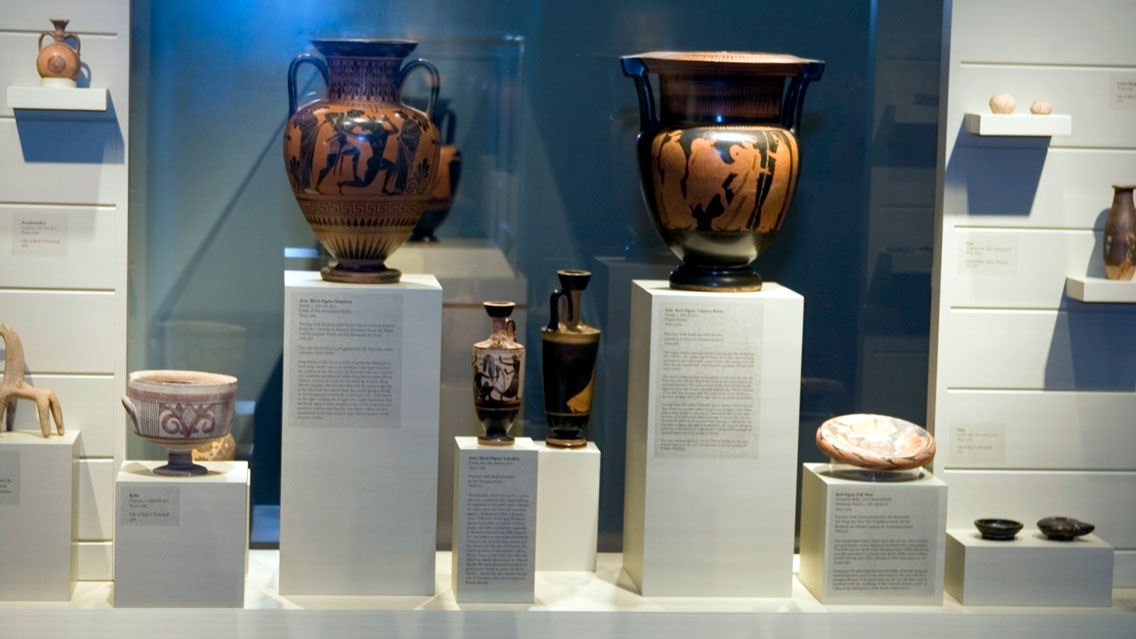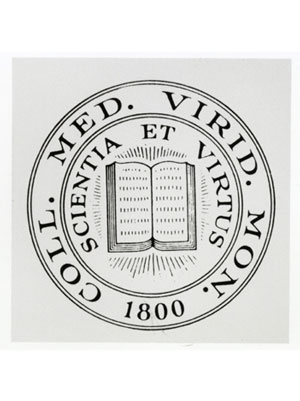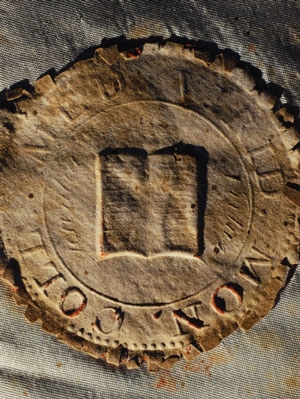Student Resources

Explore the resources below and in the rest of this section to discover the numerous opportunities available to you.
Frequently Asked Questions
Can I get a course credit from my AP Latin exam?
If you scored a 4 or 5 on the AP Latin exam, you must complete a Latin course (LATN 0201 or higher) with a grade of B or better to receive credit toward graduation (not the major). Note that no more than one course credit will be granted, whether the student presents one or two AP exams.
How do I place into Greek and Latin language courses?
For Greek, there is no placement exam. Please see the instructor of the course in which you are interested.
For Latin, a placement exam is administered usually at the beginning of each school year. Please contact Trish Dougherty at pdougher@middlebury.edu if you have questions about the placement exam.
How do the majors in classics and classical studies differ?
Both majors involve a combination of language and classical civilization courses. In classics, however, students take 10 courses in two languages and fewer classical civilization courses; in classical studies, students take a minimum of four classes in just one language and a greater number of classical civilization courses. The senior work for both majors is the same.
What do I need to do to pursue a graduate degree in classics?
You can consult with any faculty member in the Classics Department.
What careers do classics and classical studies majors pursue after graduating?
Our majors use their degrees to pursue careers in a surprisingly wide range of fields. Learn about our alumni.
How large are classes?
Our language courses usually have anywhere from two students (advanced classes) to 20 in the January term introductory course. Our lecture course enrollments range from 20 to 45 students; our seminars from three to 15 students.
How are language courses sequenced?
We stagger our Greek and Latin sequences so that in one year there may be first-, third-, and fifth-year Latin, but second-and fourth-year Greek.
Winter term LATN 0101 is offered in odd years, and winter term GREK 0101 is offered in even years.
Location and Reading Room
The Classics Department is located between College and Franklin Streets in Twilight Hall, a historic building that used to house the town’s grammar school.
It has since been dedicated to the memory of Alexander Twilight, Class of 1823 (the first African-American to earn a BA at a college in this country) and houses the Classics, Education Studies, and Philosophy Departments.
The reading room sits at the center of the Classics Department and provides a place for students to read and work. It also contains a small departmental library. Learn more about the reading room and its catalogs.
Summer Study Fund
The Eve Adler Memorial Fund for Summer Study is intended primarily to support students who wish, during the summer, to study Greek and Latin language, literature, and art, or to participate in archaeological fieldwork at a Classical site. Learn more and apply.
Worksheets
These worksheets have been developed to help you keep track of the courses required for the different majors and minors we offer.
Forms
See the Registrar’s Office for important forms for students.
College Museum of Art
Middlebury College is fortunate to have a vibrant Museum of Art with an excellent and ever-growing teaching collection of classical art and ancient coins. Some classes take “field trips” to the museum to examine and discuss works and artifacts.
Learn more about the museum’s collection of antiquities.

CCI
Discover what’s next with the Center for Careers and Internships (CCI)! As you embark on your post-Middlebury journey, CCI’s dedicated staff is available to help guide you toward your career aspirations.
- Explore our Major Guides, which provide suggestions for campus involvement, internships, and real-life career examples of Middlebury alumni.
- Connect with alumni and professionals worldwide through Midd2Midd, Middlebury’s exclusive networking platform designed to foster meaningful mentorships and industry connections.
- Navigate the various career paths associated with your major through CCI’s Career Community Pages, offering valuable advice from our advisors and tailored recommendations for events, workshops, jobs, and internships.
- Stay updated on the latest job and internship opportunities with Handshake, ensuring you never miss a chance to gain practical experience in your chosen field.
Honor Code in Greek
Middlebury students must write out and sign the following Honor Code pledge on their written work: “I have neither given nor received unauthorized aid on this assignment.” Here is a translation of the pledge in ancient Greek:


The College Seal
The official seal of Middlebury College shows an open book, with simple marks for letters. The College’s motto, Scientia et Virtus (Knowledge and Virtue), is written on either side of the book. Around the edge of the seal are four abbreviated Latin words: Coll. Med. Virid. Mon. Their full form is Collegium Medioburiense Viridis Montis; in English, Middlebury College of Vermont. (The name “Vermont” is French in origin, and the Latin viridis mons is a translation; the English is “green mountain.” The University of Vermont is commonly referred to as UVM, from Universitas Viridis Montis.)
The author of the motto is unknown. The word scientia is formed from the verb scio, “to know.” The word virtus corresponds most literally to the English word “manliness.” It is derived from vir, the Latin word for “man,” and means “the essence of being a man.” For the Romans, virtus meant above all physical courage, but the word gained connotations of moral courage. English “virtue” is derived from it but has unfortunately lost the root meaning of the Latin.
A seal is provided for in Middlebury’s charter (1800). The earliest known depiction is from an early diploma, that of Noadiah Moore, Class of 1808:

